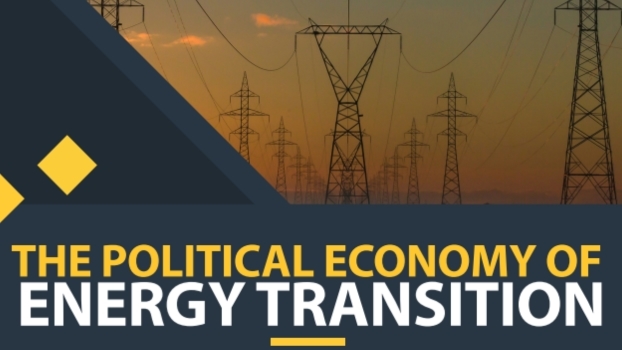
Although the consequences of overshooting planetary boundaries and the heating that this causes require an ambitious and just energy transition to low-carbon sources, the post-Ukraine context has ironically been characterised by a new scramble for Africa's fossil fuels and transition minerals. What are the reasons behind this new and ongoing trend?
Join us as we unpack the causes, nature and consequences of the new oil & gas rush.
Accordingly, it is important to ask the following questions:
- How have oil and gas helped the countries like Nigeria that have been producing for decades?
- Who really benefits from oil and gas production in Africa?
- What are the consequences of the actions of an energy-hungry world on African societies?
- Is the just transition really just, when we look at the emerging hydrogen value chain and mining of transition minerals in the DRC?
- How do we hold multinationals accountable for their actions and how do we force them to pay more taxes for windfall profits?
Speakers:
- Daniel Chavez, Transnational Institute;
- Fredson Guilengue, Rosa Luxemburg Stiftung, South Africa;
- Thomas Ewauma, activist from Nigeria;
- Ibrahima Thiam, Senegal
Please make sure to register here.
Background
In the global effort to cap warming at 1.5o or, failing that, 2o degrees relative to preindustrial levels, the UN system, through the Conference of the Parties, and other fora have identified fossil fuels as a key area for change. Campaigners for a just energy transition to low or neutral carbon economies have made calls to ‘keep it in the ground’. Prior to the Russian invasion of Ukraine, the Glasgow Financial Alliance for Net Zero (GFANZ) coalition had negotiated for financial institutions to accelerate the net-zero transition by shifting over US$20 trillion away from oil and gas.
However, the realignment in the global energy system following the Russian invasion of Ukraine has caused a new oil & gas rush. With inflows of over US$1 trillion, it is raining oil and gas money in Africa and the minerals-energy complex has never been stronger. A number of new countries have become oil and gas producers, including Mozambique, Uganda, Namibia and Senegal.
Elsewhere, the transition itself is far from just. A number of companies, including British Petroleum and Royal Dutch Shell (which recently rebranded as Shell Plc) have been quietly divesting from communities that they polluted and destroyed for decades. Through this, they seek to avoid accountability while continuing to make huge profits under a different name in the green energy sector.
The Global North is entrenching other neocolonial relationships in its transition efforts. The EV boom is causing widespread societal challenges in the Democratic Republic of Congo, including high dropout rates, gender-based violence, crime, pollution of agricultural lands and aquifers, etc. Many countries are also positioning themselves for the hydrogen markets, with over 15 African countries eager to tap into the hydrogen/ammonia value chain.
In light of the political determinism that paralyses multilateral processes, as well as the emerging anti-colonial, pan-Africanist rhetoric that many African leaders who want to continue pumping oil have discovered, it is important to revisit the hold that oil and gas has on many societies.